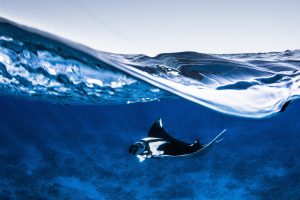A network of coral nurseries and restoration sites around the Dutch Caribbean islands of Bonaire and Klein Bonaire is being expanded by the Reef Renewal Foundation Bonaire.
RRFB employs selective propagation and breeding to strengthen coral populations, selecting only corals from genetic strains that have shown resilience towards stony coral tissue loss disease (SCTLD) and recent bleaching events.
A new nursery design was piloted in 2023, and now several new sites have been established up and down Bonaire’s west coast – where all the scuba diving takes place – with more planned throughout 2024.
RRFB says that it has already increased its nursery coral capacity by more than 20% In the project’s initial months.
“The process of expanding our nurseries will involve both branching and non-branching corals for a total of 10 species,” says managing director Francesca Virdis. “We’re focused on propagating species that are particularly affected by SCTLD, whose populations have become a high priority for our restoration efforts.”
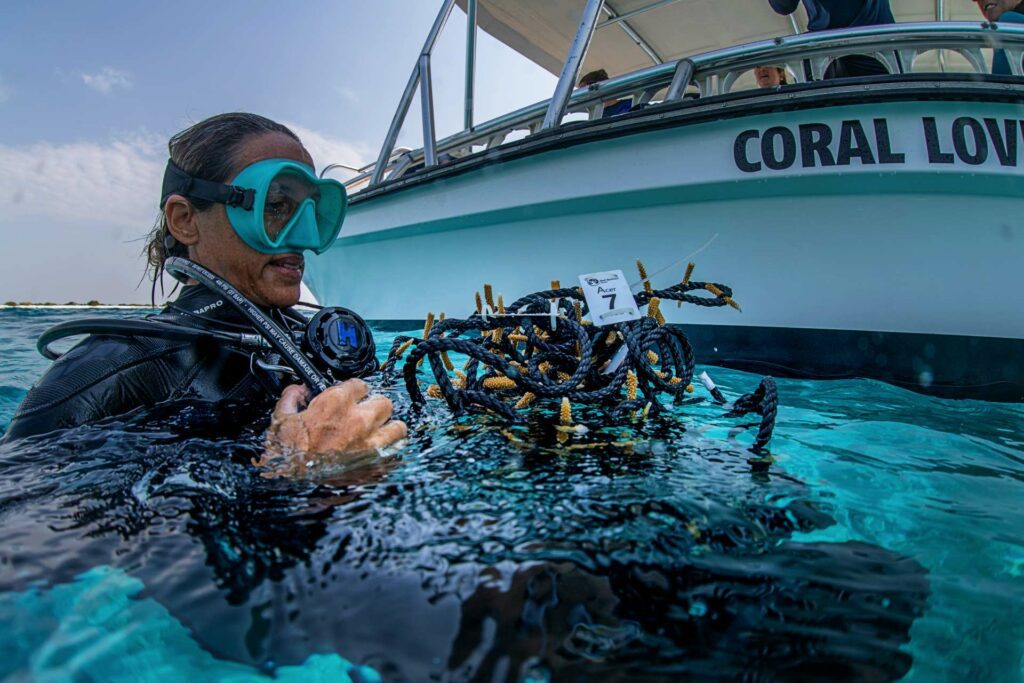
What is described as a new type of coral nursery, involving the installation of vertical ropes, forms part of the expansion. Rope nurseries, consisting of more than 70 corals threaded through a single rope, are said to be less prone to algae overgrowth and other types of biofouling.
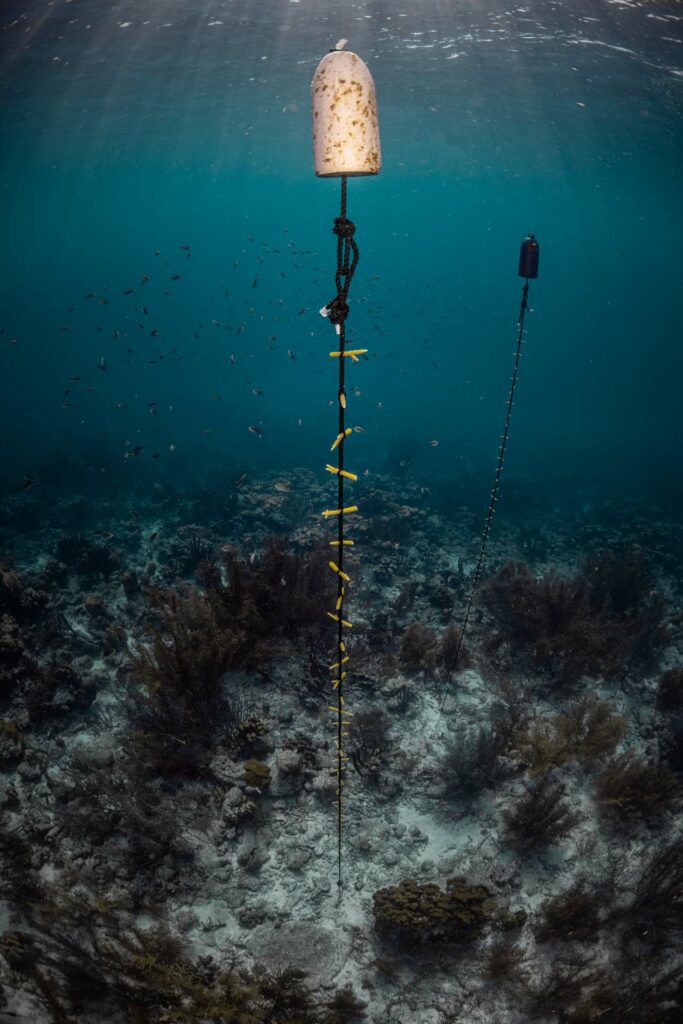
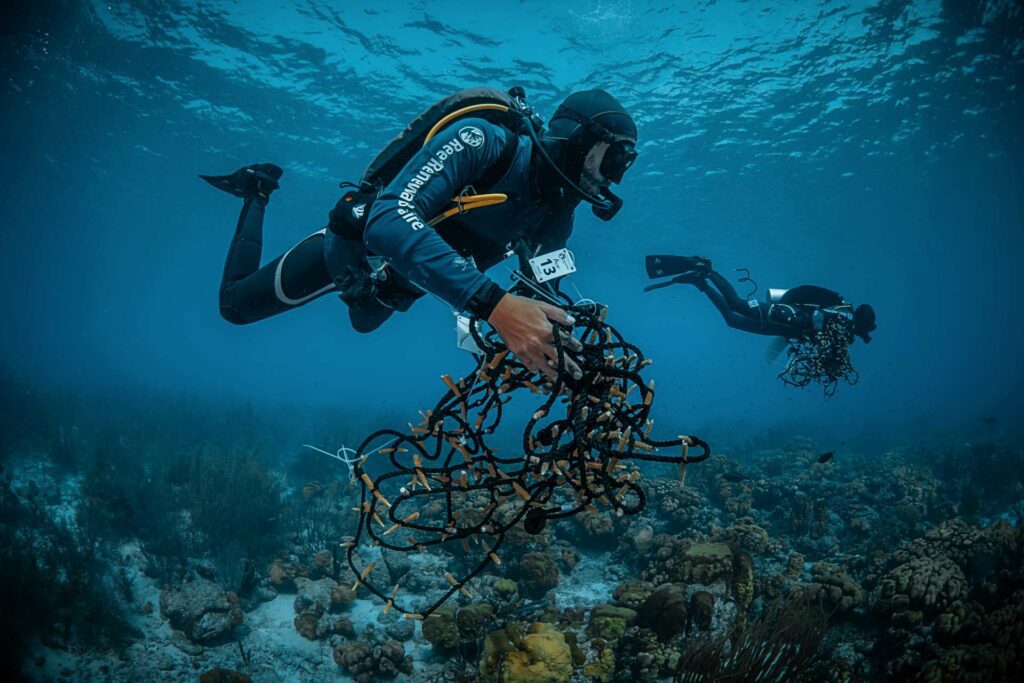
Parent corals are never removed from the ropes, allowing for faster restocking after fragments have been out-planted, says RRFB. It has so far installed its rope nurseries at the Oil Slick Leap, Lighthouse Point and Angel City sites.
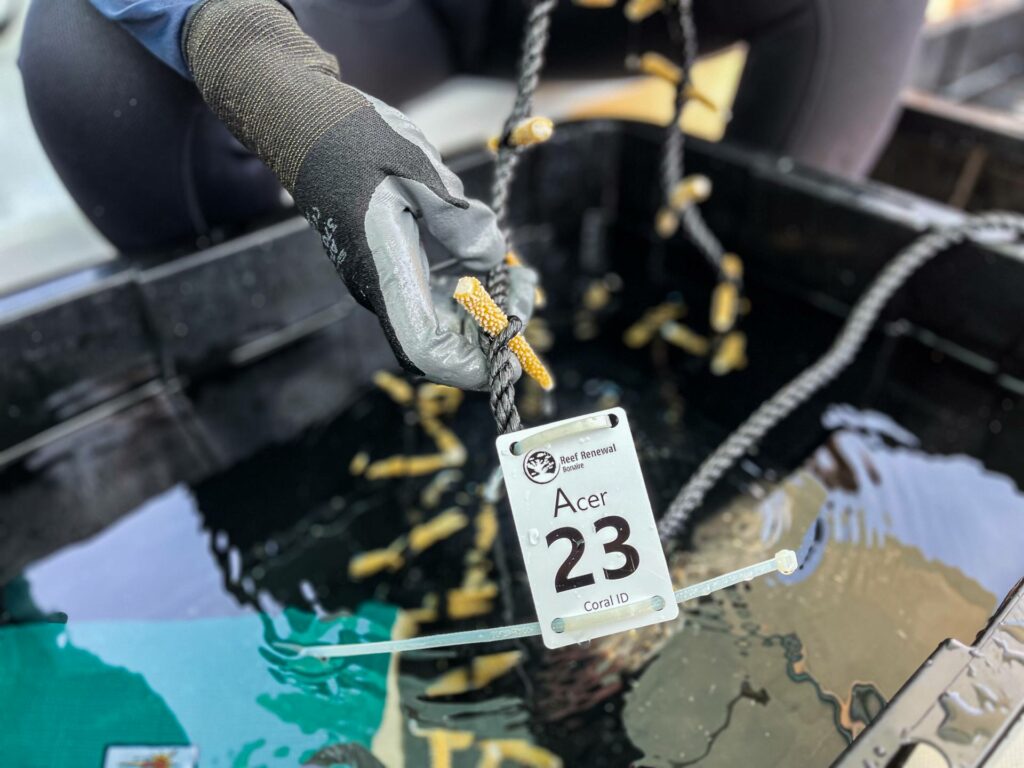
Multiple tray nurseries, which hold several species of boulder coral affected by SCTLD, have also been installed, with RRFB monitoring the health of all the corals before and after out-planting to inform selective breeding efforts.
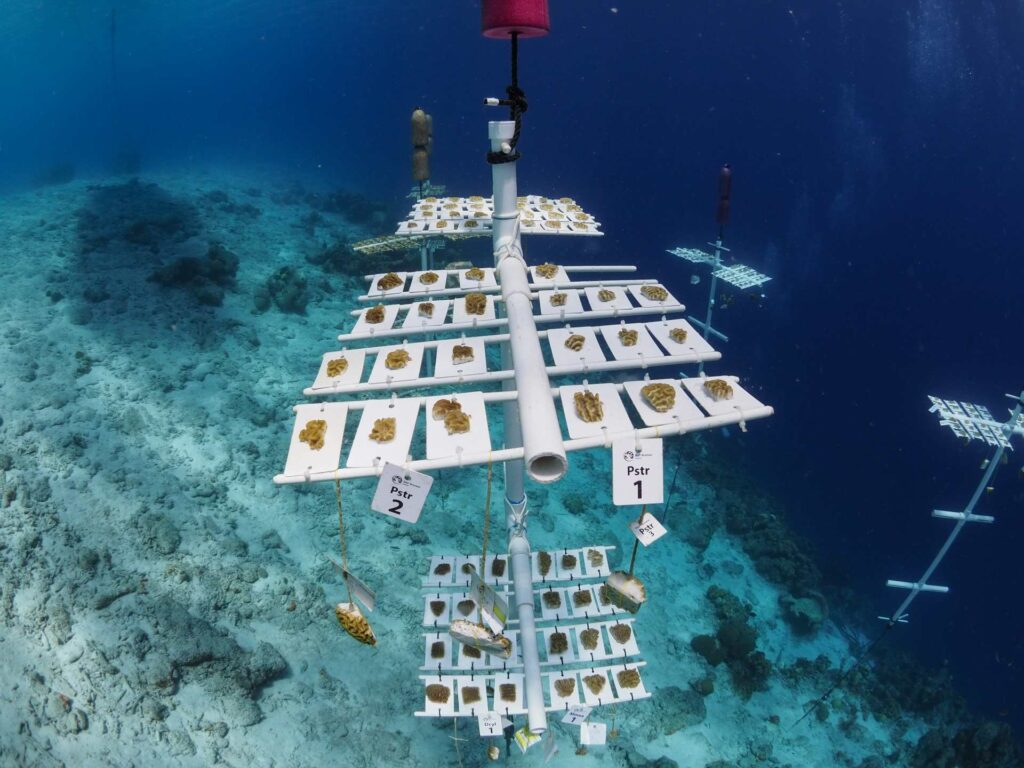
The RRFB project is funded by the Netherlands and Bonaire municipal governments for the implementation of nature and environmental initiatives.
Also read: Coralpalooza Day of Action For Coral Reefs, Conservation: Ocean Gardener’s Fight for Indonesia’s Reefs, One of the World’s Largest Coral Nurseries Planned in Maldives, Pom Pom Island Rubble to Reef Marine Conservation



